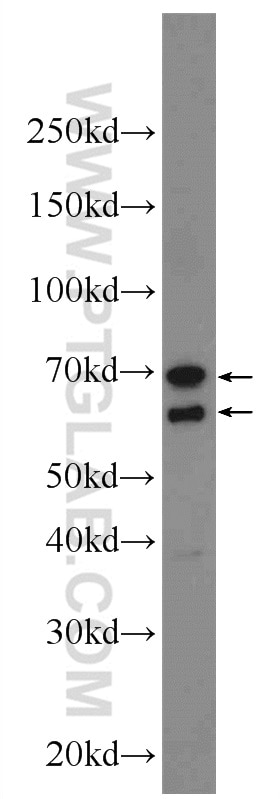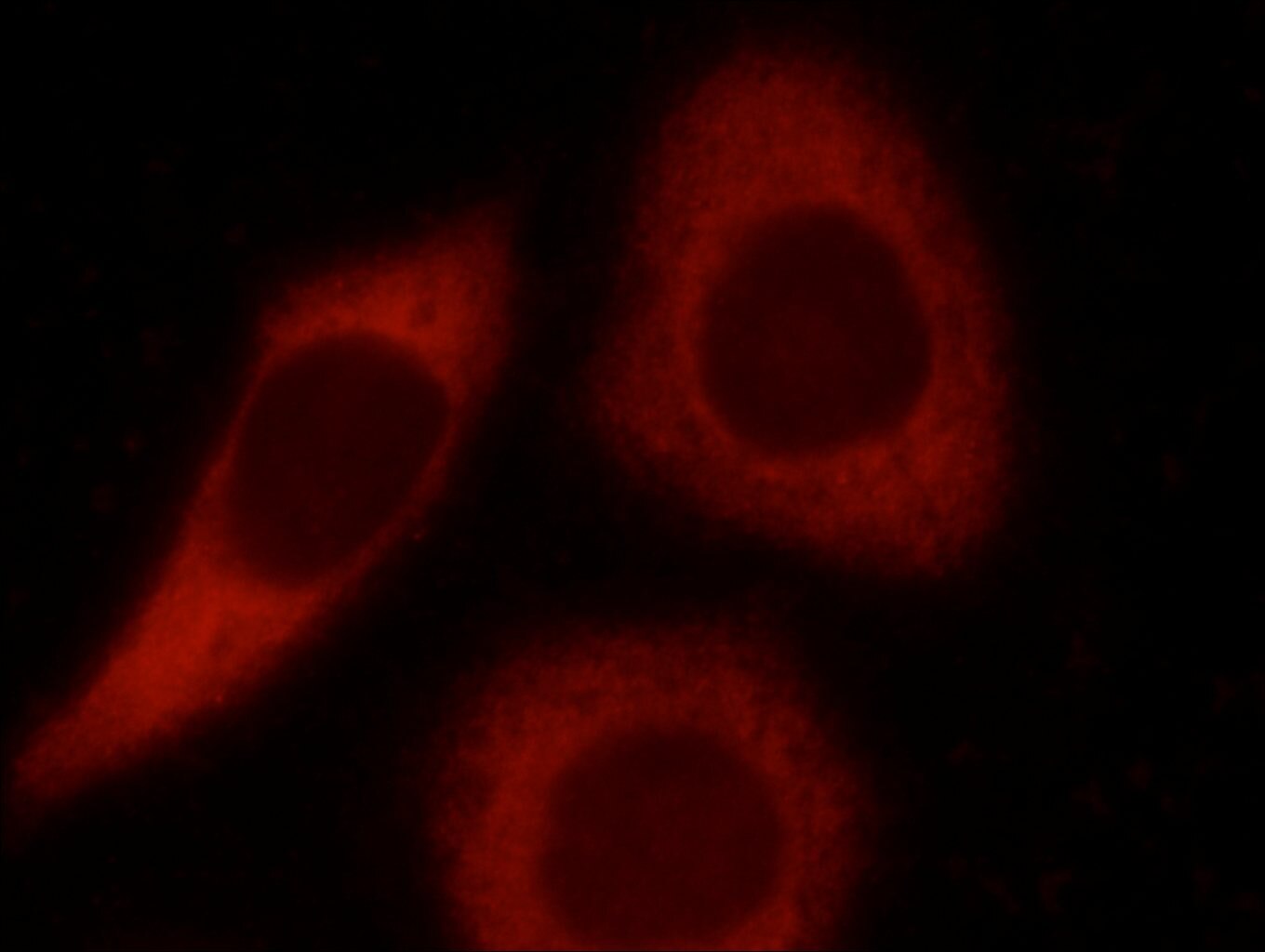Tested Applications
| Positive WB detected in | MCF-7 cells |
| Positive IF/ICC detected in | HeLa cells |
Recommended dilution
| Application | Dilution |
|---|---|
| Western Blot (WB) | WB : 1:500-1:2000 |
| Immunofluorescence (IF)/ICC | IF/ICC : 1:10-1:100 |
| It is recommended that this reagent should be titrated in each testing system to obtain optimal results. | |
| Sample-dependent, Check data in validation data gallery. | |
Product Information
24589-1-AP targets LCTL in WB, IF/ICC, ELISA applications and shows reactivity with human samples.
| Tested Reactivity | human |
| Host / Isotype | Rabbit / IgG |
| Class | Polyclonal |
| Type | Antibody |
| Immunogen |
CatNo: Ag20220 Product name: Recombinant human LCTL protein Source: e coli.-derived, PET28a Tag: 6*His Domain: 250-541 aa of BC152990 Sequence: SKQQGLVGISLNCDWGEPVDISNPKDLEAAERYLQFCLGWFANPIYAGDYPQVMKDYIGRKSAEQGLEMSRLPVFSLQEKSYIKGTSDFLGLGHFTTRYITERNYPSRQGPSYQNDRDLIELVDPNWPDLGSKWLYSVPWGFRRLLNFAQTQYGDPPIYVMENGASQKFHCTQLCDEWRIQYLKGYINEMLKAIKDGANIKGYTSWSLLDKFEWEKGYSDRYGFYYVEFNDRNKPRYPKASVQYYKKIIIANGFPNPREVESWYLKALETCSINNQMLAAEPLLSHMQMVTE Predict reactive species |
| Full Name | lactase-like |
| Calculated Molecular Weight | 567 aa, 65 kDa |
| Observed Molecular Weight | 39 kDa, 65 kDa, 70 kDa |
| GenBank Accession Number | BC152990 |
| Gene Symbol | LCTL |
| Gene ID (NCBI) | 197021 |
| RRID | AB_2879625 |
| Conjugate | Unconjugated |
| Form | Liquid |
| Purification Method | Antigen affinity purification |
| UNIPROT ID | Q6UWM7 |
| Storage Buffer | PBS with 0.02% sodium azide and 50% glycerol, pH 7.3. |
| Storage Conditions | Store at -20°C. Stable for one year after shipment. Aliquoting is unnecessary for -20oC storage. 20ul sizes contain 0.1% BSA. |
Background Information
Lactase-like is a glycosidase enzyme, which could hydrolyze glycosidic bonds and are classified into families based on primary amino acid sequence. The mouse ortholog of this protein has been characterized and has a domain structure of an N-terminal signal peptide, glycosidase domain, transmembrane domain, and a short cytoplasmic tail.
Protocols
| Product Specific Protocols | |
|---|---|
| IF protocol for LCTL antibody 24589-1-AP | Download protocol |
| WB protocol for LCTL antibody 24589-1-AP | Download protocol |
| Standard Protocols | |
|---|---|
| Click here to view our Standard Protocols |






